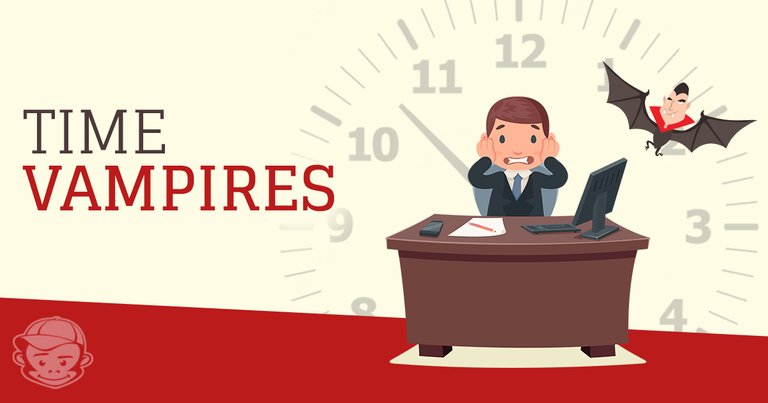Premium Service

Hive has many opportunities to have cake and eat it too.
Unfortunately many of these opportunities are not relevant within the current environment. Two days ago I wrote about the need to provide premium service to the blockchain. I wrote about the need to charge user resources to read from the blockchain and make API requests to full nodes in addition to charging for writes as well.
Needless to say: telling people that they need to be charged for something that they are currently receiving for free always always always will create a lot of resentment and pushback. People don't like being told they're going to have another expense where there wasn't one before. Why? Because people for the most part are drowning in scarcity and living paycheck to paycheck.
Even billionaires are drowning within their own scarcity mindset; in fact that's the only way to become a billionaire in the first place (the unethical practice of leeching as much value as you can out of your employees). There are no billionaires in this world that made their money in an ethical way; that is a fact, but it is also beyond the scope of this topic. Bottom line is that hopefully crypto can be the first to accomplish such a feat (assuming it hasn't already with early Bitcoin adopters).
Doesn't matter if you think it's a bad idea.
Different business models apply to different people. When I talk about the need for premium services and charging users to access the API, it is assumed by many that I'm heavily implying that free API access needs to disappear. Of course I have no control over this so it is ridiculous sentiment, just like the detractors of premium services have zero power over what happens. I can't stop someone from booting up a full node and distributing bandwidth for free, just like nobody can stop someone from doing the exact same thing in exchange for some kind of subscription (likely RCs or HP delegations... or perhaps even 'just' governance votes). Welcome to decentralized flat architecture; where whatever gets built is allowed to operate unimpeded.
Example
Let's say I create a frontend to Hive. In this case it would probably be some basic game, but you never know it could be anything really. After all, Hive is not a social media chain; it is simply a chain that stores raw text (including native javascript code that can easily be parsed to and from the chain). Hive can run anything, just like Bitcoin can run anything using Ordinals architecture. The only question is how many resources will it cost.
So I have my game (continuing the example)
It's in the early testing phases. Am I really going to pay $1000 a month on some bad ass server that can process billions of transactions and never gets bogged down from requests? Of course not. That would be extremely irresponsible and a complete waste of money. So I just connect to one of the free APIs provided by one of the witnesses. Deathwing's probably because I have a direct line of communication to him via multiple channels. And it's a reliable server. And he's a top 20 witness with an incentive to keep it that way. There are lots of reasons to pick that node, and if there's ever a problem I can just cycle to another one.
CYCLE TO ANOTHER ONE.
Yeah guess what? I'm not the only one with this idea. So say Deathwing's node gets a reputation for being very reliable. Now more people are using it. Of course the more people that use your node the less reliable it becomes unless upgrades are made to clear out any bottlenecks that pop up. Inevitably one day the server will become overloaded with requests, and then what happens?
If a reliable server on Hive fails, everyone that was using that node is just going to pivot to another node. See where this is going? The chance for cascading failure is significantly higher because the chance that the remaining servers can process the higher load dwindles. Like dominoes people are leap-frogging from node to node and overloading it with requests. Scotbot fails and now everything built on HiveEngine is timing out. There are many bottlenecks to lookout for on a technical level.

Uptime is money.
If I'm building a thing on Hive, it looks very unprofessional if my uptime isn't 99.9%+. More importantly, spotty connections like that enrage the end-user, reduce stickiness, and increase the chance of ragequits. This is a perfect example in which I'd rather pay for premium service and have more guarantee that the nodes I'm using aren't going to get bogged down with requests. Paid API data-streams can't even be DDoSed because the node will just ignore all requests coming in from non-paying accounts.
So if I build a thing on Hive, I'd much rather pay $1-$5 a month for access to a node to ensure my product has reliable access to blockchain data rather than get it for free in the jungle and just hope for the best. The value of the premium service is worth more than the cost, which is exactly how capitalistic systems scale up. When things are not profitable they don't scale up, and free service does not scale up. Obviously.
Unless... web2
Free service absolutely does scale up if you're processing billions of transactions and tracking all the data for targeted advertising and other types of data-monetization techniques. However, not only is that a penny-pinching game with extremely high overhead, inherent risk, and razor-thin profit margins, but it is also guaranteed to be centralized by design.
Crypto isn't centralized, so the mainstream scaled up version of this WEB2.5 business model is never going to work. Not in a million years (despite all the comically feeble attempts to jam the square peg into the round hole). The only model that makes sense on a scaled-up level is micro-charging users for the resources they consume instead of data-mining them like digital cattle. This is especially true because all data on the blockchain is public. How are you going to sell data that literally everyone in the world has access to? Good luck with that friend.

The example above details why devs building on Hive might want access to premium/paid services... but what if...
Hardcore Game
So say this game I built on Hive is very difficult and super hardcore. The stakes are high and if you die in the game you're going to lose a lot of resources. Again we see that there is an opportunity to create a situation where the value of premium service is worth exponentially more than the cost. Let's say if you die you lose like $100 worth of NFTs. Doesn't it then become extremely worth it to pay the equivalent of $1 a month for premium service to ensure you're going to have a good connection?
At that point in the game I'd probably be heavily incentivized to boot up my own full node and only provide access to players of the game. And that's where things can get kind of crazy. Because what would be the cost of this premium mode? Think about it: I could charge anything.
- Credit Card (unlikely)
- Hive
- HBD
- HP delegation
- RC delegation
- Witness vote
- In-game gold
Yeah, there'd be a liquidity pool for in-game gold directly to HBD, so the cost could literally be a resource that's farmed in-game. This is what I'm talking about when I say crypto can have its cake and eat it too; the number of options we have when we own and control our own currencies directly is massively expanded using programmable-money compared to any legacy entity. Even the FED doesn't control USD (just interest rates and reserve assets). We control Hive/HBD, and we control anything built on top of it. That's powerful.

Money for time is outdated.
Why do employers and employees agree that trading time for money is an acceptable model? Because it's simple and it actually works. Imagine what would happen if we tried to implement a meritocracy. Every worker is paid based upon the merit of their work and their work-ethic. On paper this sounds like a superior system until you realize that measuring "merit" is completely subjective and prone to blatant corruption. Even if it wasn't corrupt at all it would still be extremely complicated and the overhead cost of the system almost certainly wouldn't be worth the hassle. So people get paid by the hour or by the year and everyone is fine with that for the most part.
The same logic applies to subscriptions.
When we pay our Internet bill it's a monthly bill and a flat fee in exchange for "infinite" service. Of course anyone that lived through the glory days of torrent file sharing knows that if you're downloading files 24/7 your ISP is probably going to shadowban your bandwidth and reduce it to much lower levels at a certain point. The same thing goes for making a website. We might find a host that offers "infinite" bandwidth. They are lying. Facebook obviously can't pay $50 a month to some random service provider and then expect them to run the entire Facebook network on it. There are always hidden limits to these things.
But crypto has the ability to micro-charge.
Payment streams are not something you can really do on legacy systems. I went into some detail on this topic before in a post a few weeks back. Hive is in a very unique situation in which we can open up a payment stream without even explicitly transferring the money over time. We do this through delegations.
An RC/HP delegation pays out value in a known streamed amount on every block, and none of those value transfers are stored on the blockchain (only the opening and closing of the channel) because they don't require permission/signatures. Everything in the middle is an implied virtual transaction that gets processed on nodes without nodes having to tell one another about it. I imagine such features will become very important within an environment of mainstream adoption and efficient bandwidth usage.

Conclusion
In order for economic systems to scale up they have to be sustainable. Under capitalism, 'sustainable' is synonymous with 'profitable'. In every single scaled-up system it is guaranteed that the price being paid for the asset is worth less than its value to the entities buying it. That is the only reason to buy something (value > price).
At the same time it is also guaranteed that the price being charged for the asset is more than the cost to generate it. Both parties have to gain something in order for sustainability and scale to occur. Commonly the corporation gains a cashflow while the end-user gains some kind of utility. That's just basic capitalism. Supply & demand blah blah blah.
So we have to ask ourselves: do Hive's incentives align in such a way that allow us to build these recursively scalable systems and positive feedback-loops? In case it's not obvious by now: my analysis of the situation is that we absolutely are not prepared for mainstream adoption in this regard (for a lot of different reasons actually, including a lack of economic elasticity).
Luckily this is to be expected. It's not just Hive dropping the ball: it's everybody. Everyone thinks that in order to compete with WEB2 we need to do everything that WEB2 does, except better. We "have to provide free service to gain mainstream adoption". That is not how this works. The rules of WEB3 are completely different than WEB2, and simply trying to copy the strategies of WEB2 is going to inevitably result in extreme failures on the long-term timelines.
The most blatant offenders in all of this are the Bitcoiners. They are absolutely delusional. Smart community. Big community. But also a delusional community that thinks they've already done everything that needs to be done. Again, this is a good thing, as it's exactly what a decentralized ecosystem requires. It would be bad for everyone is Bitcoin was able to scoop up 100% of the value floating around out there. That's inherently centralized (or if you ask a maxi they might call it 'manifest destiny' or some other bullshit).
Hive is at the front of the line on a lot of this stuff, but we still have a long way to go. The incentives are there, but they are out of alignment. We pay witnesses to mint blocks and it is assumed they'll be providing infrastructure with the money we give them, but it is not guaranteed with current incentives. It's possible to make a shift with a premium-service template that allows anyone on Hive to run infrastructure while turning a profit without having to be voted into the top 20. If we can flush out that template and create value that is greater than the price: our network will easily be able to scale larger than any other crypto platform in the world (until they start copying us of course).
But again, this idea is ahead of its time. There's nothing to be done today except to be thinking about this issue. If a dev on Hive creates a premium service now it will almost certainly be a waste of time and money. There simply isn't enough demand for such a thing within a small environment. This is why economic systems have and will always fail to scale gracefully over time. Growing pains are inevitable. We can't avoid these problems; only mitigate the time it takes to conquer them.
!PGM
!PIZZA
!CTP
BUY AND STAKE THE PGM TO SEND A LOT OF TOKENS!
The tokens that the command sends are: 0.1 PGM-0.1 LVL-0.1 THGAMING-0.05 DEC-15 SBT-1 STARBITS-[0.00000001 BTC (SWAP.BTC) only if you have 2500 PGM in stake or more ]
5000 PGM IN STAKE = 2x rewards!
Discord
Support the curation account @ pgm-curator with a delegation 10 HP - 50 HP - 100 HP - 500 HP - 1000 HP
Get potential votes from @ pgm-curator by paying in PGM, here is a guide
I'm a bot, if you want a hand ask @ zottone444
$PIZZA slices delivered:
@torran(3/10) tipped @edicted